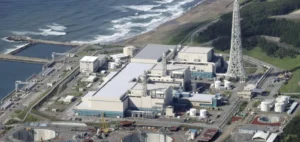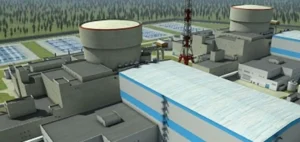Amazon has announced strategic agreements aimed at promoting the construction of small modular reactors (SMRs) in the states of Virginia and Washington. This initiative is part of the company’s effort to secure a sustainable energy source and reduce the carbon footprint of its data centers.
The agreement with Energy Northwest involves the construction of four advanced reactors of 80 MW each in the state of Washington. These reactors will be developed in partnership with X-energy Reactor Co., a company specialized in innovative nuclear technologies. Amazon will also have the option to acquire 320 MW of power from these facilities.
Investment and Collaboration
In parallel, Amazon is conducting a $500 million funding round to support X-energy. This investment aims to strengthen the production capacity of the equipment necessary for constructing SMRs, thereby supporting more than 5 GW of new energy projects based on X-energy’s technology. Other investors include Ares Management Corp. and Ken Griffin, founder of the renowned hedge fund.
Dominion Energy, a long-time partner in the energy sector, has signed a memorandum of understanding with Amazon to explore the development of an SMR with a capacity of up to 300 MW at the North Anna nuclear plant site in central Virginia. This collaboration could result in the selection of a preferred vendor by the first quarter of 2025.
Impact on the Energy Sector
These initiatives mark a significant advancement in the adoption of SMRs, offering a reliable and clean alternative to traditional energy sources. SMRs have the advantage of being modular and easier to deploy compared to conventional nuclear reactors, allowing for faster expansion and more flexible integration into the existing energy grid.
The president of Dominion Energy Virginia, Ed Bain, emphasized the importance of this collaboration in meeting the growing energy demand related to the expansion of data centers and technological needs. “This initiative represents a key step towards a more sustainable and resilient energy future,” he stated during Amazon’s presentation.
Future Perspectives
Energy Northwest plans to submit a construction permit application for the new reactors at the beginning of 2025, alongside a loan guarantee application to the U.S. Department of Energy. These steps are essential to secure the financing and authorizations necessary for project completion.
Amazon’s commitment to modular nuclear reflects a broader trend among major technology companies, which are seeking to diversify their energy sources to support their operations while meeting their sustainability goals. Google, for example, recently signed an agreement to deploy 500 MW of advanced nuclear projects by 2030.
Challenges and Obstacles
Despite the potential benefits, the development of SMRs presents challenges, particularly in terms of regulation, financing, and managing technological risks. Amazon, as a major investor, is assuming a significant portion of the initial risks, thereby facilitating the launch of projects and encouraging other investors to follow suit.
The success of these initiatives could catalyze broader adoption of SMRs, thus contributing to the global energy transition and the reduction of greenhouse gas emissions. Additionally, it positions Amazon as a key player in the field of clean energy, enhancing its image as a leader in sustainability and technological innovation.






















